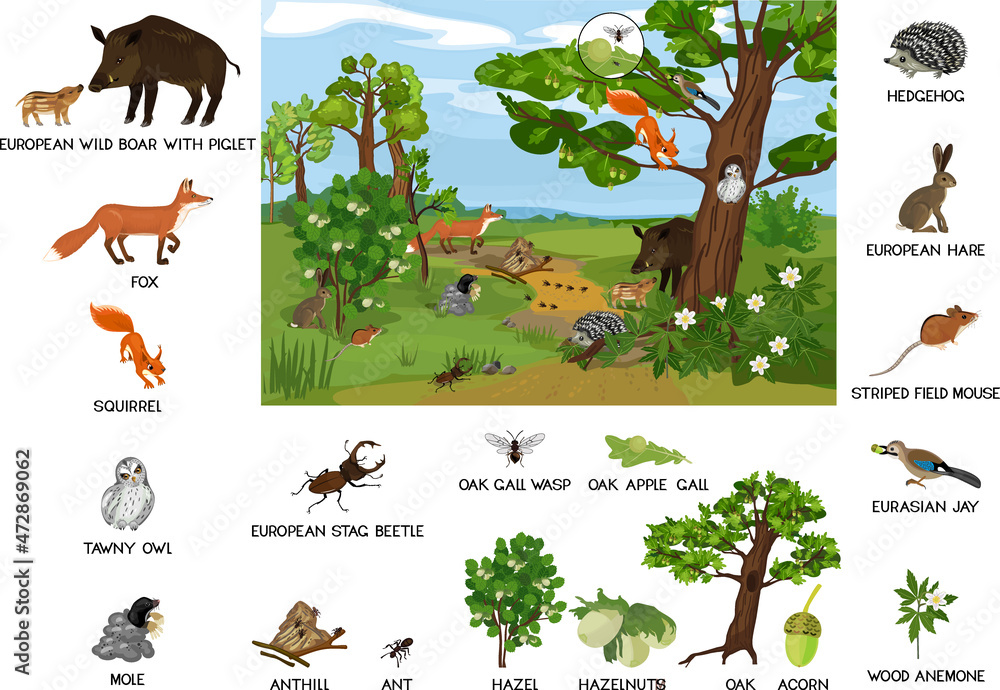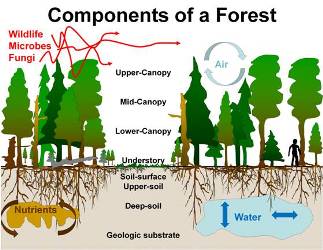Topic ecosystem services from forests: Discover the invaluable benefits forests offer through ecosystem services, playing a pivotal role in sustaining environmental health and human well-being.
Table of Content
- What are the ecosystem services provided by forests?
- Provisioning Services: Food, Freshwater, Wood, and Fiber
- Regulating Services: Climate Regulation, Flood Control, Disease Regulation
- Cultural Services: Recreational, Spiritual, Educational Benefits
- Supporting Services: Soil Formation, Nutrient Cycling, Oxygen Production
- Climate Mitigation: Carbon Sequestration and Storage
- Biodiversity Conservation: Habitat for Species
- YOUTUBE: Ecosystem Services in Forests
- Water Regulation and Purification: Maintaining Hydrological Cycles
- Recreational and Ecotourism Opportunities: Enhancing Human Well-being
What are the ecosystem services provided by forests?
Ecosystem services are the benefits that humans receive from natural ecosystems. Forests provide a wide range of ecosystem services, including:
- Climate regulation: Forests help regulate the Earth\'s climate by taking in carbon dioxide from the atmosphere through photosynthesis and storing it as carbon in biomass and soils. They also release oxygen into the atmosphere.
- Water purification: Forests act as natural filters, slowing down and filtering rainwater as it moves through the trees, leaves, and soil layers. This helps to improve water quality by removing pollutants and sediments.
- Habitat and biodiversity: Forests provide essential habitat for a diverse range of plant and animal species. They offer food, shelter, and breeding grounds for countless organisms, supporting biodiversity and contributing to the overall health of ecosystems.
- Soil conservation and fertility: Forests help prevent soil erosion by providing a protective canopy that reduces the impact of raindrops. The roots of trees also help bind the soil, preventing it from being washed away. Fallen leaves and organic matter contribute to nutrient cycles, sustaining soil fertility.
- Timber and non-timber forest products: Forests provide a renewable source of timber, which is used in construction, furniture, and paper production. Additionally, they offer a wide variety of non-timber forest products, such as fruits, nuts, medicinal plants, and fibers, which have both economic and cultural value.
- Recreation and tourism: Forests offer opportunities for recreational activities such as hiking, camping, birdwatching, and nature photography. They also attract tourists who appreciate the beauty and serenity of natural landscapes.
These ecosystem services provided by forests are vital for both human well-being and the health of the planet. Protecting and sustainably managing forest ecosystems is crucial for maintaining these benefits for future generations.
READ MORE:
Provisioning Services: Food, Freshwater, Wood, and Fiber
Forests are vital for providing a wide array of provisioning services that are essential for human survival and economic activities. These services include:
- Food: Forests are a source of diverse foods including fruits, nuts, mushrooms, and honey, contributing to food security and nutrition.
- Freshwater: They play a critical role in the hydrological cycle, influencing the quantity and quality of water available for drinking, agriculture, and sanitation.
- Wood: Timber and other wood products derived from forests are used in construction, furniture, and as fuel for cooking and heating.
- Fiber: Forests provide natural fibers used in clothing, paper, and other products, offering sustainable alternatives to synthetic materials.
These provisioning services not only support livelihoods but also underpin economic sectors, making forest conservation and sustainable management crucial for future generations.

Regulating Services: Climate Regulation, Flood Control, Disease Regulation
Forests play a crucial role in regulating environmental processes that benefit humanity and the planet. These services include:
- Climate Regulation: Forests absorb carbon dioxide, a greenhouse gas, during photosynthesis, reducing the impacts of climate change. They also influence local climate conditions by moderating temperatures.
- Flood Control: Trees and forest soils act as natural sponges, absorbing and storing rainwater, which reduces runoff and the severity of floods.
- Disease Regulation: By maintaining healthy ecosystems, forests can help control diseases. They act as barriers to some disease vectors, such as mosquitoes, by altering their habitats.
These regulating services are essential for maintaining ecological balance and protecting human communities from environmental hazards. Sustainable forest management strategies are vital to preserve these benefits for future generations.
Cultural Services: Recreational, Spiritual, Educational Benefits
Forests enrich our lives beyond their material contributions, offering a wealth of cultural services that nurture our spirit, body, and mind. These include:
- Recreational Benefits: Forests provide spaces for hiking, birdwatching, and nature photography, offering people a chance to relax, exercise, and connect with nature.
- Spiritual Benefits: Many cultures regard forests as sacred places that offer spiritual connection, tranquility, and a sense of belonging.
- Educational Benefits: Forests serve as outdoor classrooms where both children and adults can learn about ecology, conservation, and the importance of biodiversity through direct experience.
These cultural services enhance our quality of life, promote mental and physical health, and foster a deeper appreciation for the natural world. Preserving forests is thus not only an ecological necessity but also a cultural imperative.

Supporting Services: Soil Formation, Nutrient Cycling, Oxygen Production
Forests are foundational to the Earth"s life support systems, providing essential services that sustain the planet"s biosphere:
- Soil Formation: Forests contribute to soil formation through the decomposition of leaf litter and other organic material, which enriches the soil and supports diverse plant life.
- Nutrient Cycling: They play a key role in nutrient cycling, transferring nutrients from the soil to the plants and back to the soil, maintaining the health and fertility of ecosystems.
- Oxygen Production: Through photosynthesis, forests produce oxygen, a vital element for most living organisms on Earth, while absorbing carbon dioxide from the atmosphere.
These supporting services are crucial for the maintenance of ecological balance and the continuation of life as we know it. Protecting forests ensures the resilience of these natural processes and our own well-being.
Climate Mitigation: Carbon Sequestration and Storage
Forests are critical allies in the fight against climate change, providing powerful climate mitigation services:
- Carbon Sequestration: Trees absorb CO2 from the atmosphere during the process of photosynthesis, converting it into biomass and storing it in their trunks, branches, leaves, and roots.
- Carbon Storage: Forests act as carbon sinks, storing vast amounts of carbon for long periods, thereby reducing the concentration of greenhouse gases in the atmosphere.
- Reducing Global Warming: By sequestering and storing carbon, forests help mitigate global warming and its associated climate impacts, playing a crucial role in climate regulation.
Efforts to preserve and expand forested areas are essential for enhancing carbon sequestration capabilities, contributing to the global response to climate change and working towards achieving international climate targets.
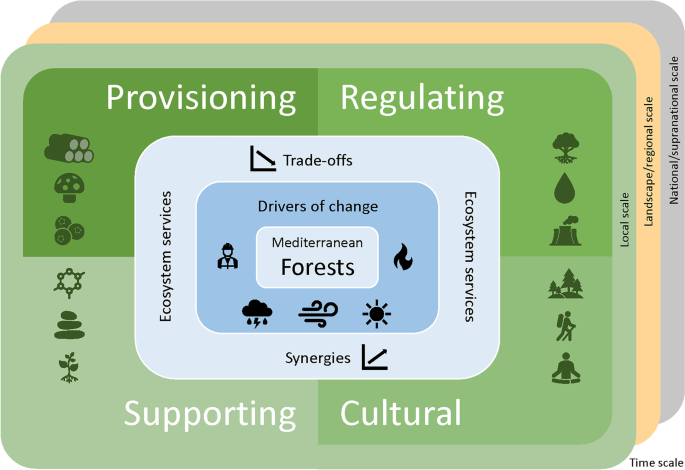
Biodiversity Conservation: Habitat for Species
Forests are vital for maintaining global biodiversity, offering a sanctuary for countless species:
- Habitat for Species: Forests provide diverse habitats that support a wide range of animal and plant species, including many endangered and endemic species.
- Genetic Diversity: The vast array of species within forests contributes to genetic diversity, which is crucial for ecosystem resilience and the ability to adapt to changing environmental conditions.
- Ecosystem Stability: Biodiversity ensures ecosystem stability and functionality, enabling forests to provide continuous ecosystem services such as air and water purification, soil fertility, and pollination of crops.
Conserving forests is essential for preserving the planet"s biodiversity, ensuring the survival of species, and maintaining ecological balance. Initiatives to protect and restore forest ecosystems are key to biodiversity conservation efforts worldwide.
Ecosystem Services in Forests
Immerse yourself in the breathtaking beauty of the forest, as you explore this captivating video that takes you on a journey through towering trees, lush vegetation, and serene landscapes that will leave you in awe of nature\'s wonders.
Valuing All the Benefits from Forest Ecosystem Services
Discover the importance of valuing what truly matters in life, as this inspiring video reminds us to embrace the power of gratitude, love, and kindness. Join us on this transformative journey as we explore the art of valuing and find meaning in the small moments that make life extraordinary.
Water Regulation and Purification: Maintaining Hydrological Cycles
Forests play a crucial role in water regulation and purification, integral to sustaining hydrological cycles:
- Water Regulation: Forests influence the amount and timing of runoff, recharge groundwater supplies, and regulate river flows, reducing the risk of floods and droughts.
- Water Purification: Forest ecosystems filter pollutants from water, improving its quality for drinking, agriculture, and habitat health through the natural filtration process of soil and vegetation.
- Maintaining Hydrological Cycles: By transpiring water from soil to the atmosphere and precipitating it back as rain, forests maintain the hydrological cycle, essential for all life on Earth.
Efforts to conserve and restore forests are crucial for maintaining these natural water management systems, ensuring the availability of clean water for ecosystems, agriculture, and human consumption.

READ MORE:
Recreational and Ecotourism Opportunities: Enhancing Human Well-being
Forests play a pivotal role in providing recreational and ecotourism opportunities that significantly contribute to the well-being and quality of life for individuals and communities. These green spaces offer a sanctuary for those seeking tranquility, adventure, and a connection with nature. The diverse landscapes, rich biodiversity, and natural beauty of forests make them ideal destinations for a wide range of recreational activities and ecotourism experiences.
- Hiking and Trekking: Forest trails offer various difficulty levels, catering to both beginners and experienced hikers, allowing visitors to explore the natural beauty, wildlife, and serene landscapes.
- Wildlife Observation: Forests are home to an array of species, providing opportunities for wildlife observation and photography. Birdwatching, in particular, attracts enthusiasts eager to catch a glimpse of rare and exotic bird species.
- Camping: Many forests offer designated camping sites where individuals, families, and groups can experience sleeping under the stars, surrounded by the soothing sounds of nature.
- Adventure Sports: For those seeking adrenaline, forests provide the perfect backdrop for adventure sports such as mountain biking, rock climbing, and zip-lining.
- Educational Programs: Guided tours, workshops, and educational programs offer insights into the ecological importance of forests, conservation efforts, and the rich cultural heritage of the area.
- Wellness and Relaxation: The natural setting of forests promotes mental and physical well-being, offering a peaceful retreat for meditation, yoga, and relaxation practices.
Ecotourism in forests not only enhances human well-being by providing recreational and educational experiences but also plays a crucial role in promoting conservation awareness and sustainable tourism practices. By engaging in ecotourism, visitors contribute to the local economy and support the conservation of these vital ecosystems, ensuring they remain vibrant and accessible for future generations.
Moreover, sustainable forest management and restoration efforts are integral to preserving the recreational and ecotourism value of forests. These initiatives focus on maintaining the health and biodiversity of forest ecosystems, enhancing the quality of recreational experiences, and ensuring the long-term sustainability of tourism activities.
Ultimately, the recreational and ecotourism opportunities offered by forests underline the importance of conserving these natural treasures. Through responsible enjoyment and engagement with forest ecosystems, individuals can play a part in safeguarding the planet"s biodiversity, promoting sustainable livelihoods, and enhancing their own well-being.

:max_bytes(150000):strip_icc()/497408077-56af61ff3df78cf772c3c309.jpg)

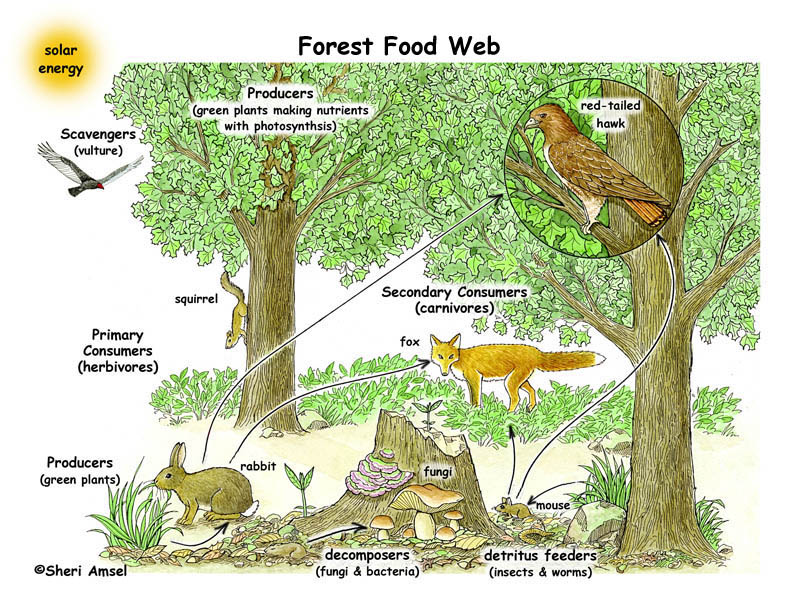


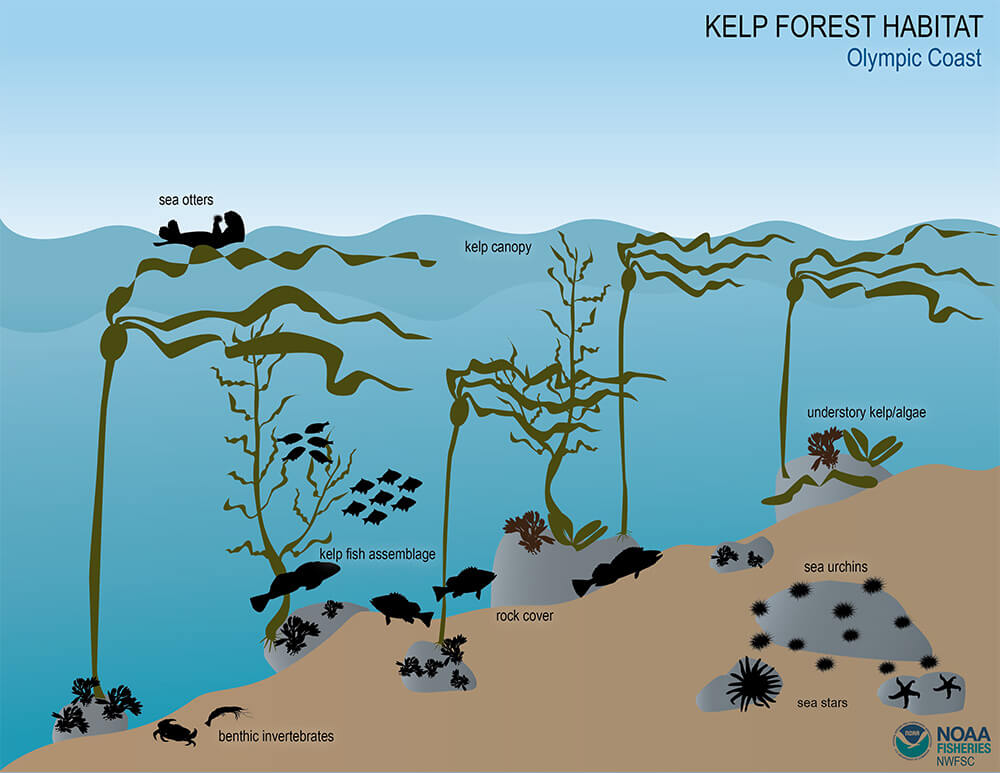



:max_bytes(150000):strip_icc()/489034241_5-56af62885f9b58b7d0183204.jpg)
